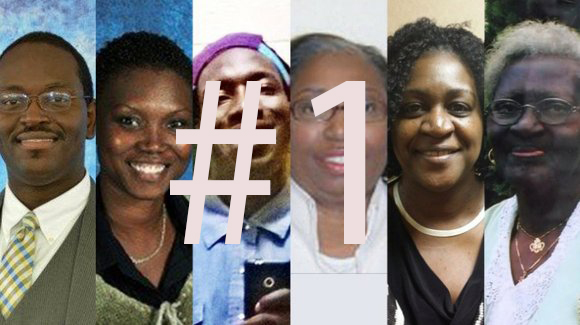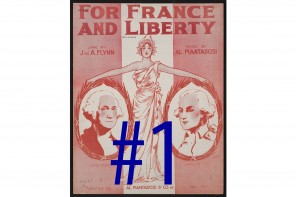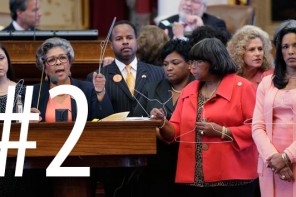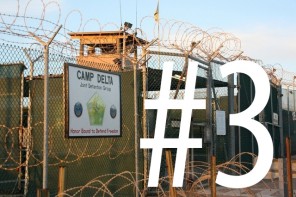It is time to take a hard look at our culture. The pattern of expressing shock, grief and then moving on all too quickly needs to change. This latest racially motivated shooting in South Carolina should be our turning point. We need to pause and spend some time considering what our culture is becoming. These massacres are intolerable, yet we seem to be tolerant. Dismissing the actions with the label of mentally ill does not go far enough. We have four suggested readings on this topic.
In this piece, in Psychology Today, the blame is placed on anti-intellectualism.
“In a country where a sitting congressman told a crowd that evolution and the Big Bang are ‘lies straight from the pit of hell.’ where the chairman of a Senate environmental panel brought a snowball into the chamber as evidence that climate change is a hoax, where almost one in three citizens can’t name the vice president, it is beyond dispute that critical thinking has been abandoned as a cultural value. Our failure as a society to connect the dots, to see that such anti-intellectualism comes with a huge price, could eventually be our downfall.”
The popularity of unsubstantiated thinking harms our country in many ways. We should think of patriotism as the love of our country and the love our freedom to do better, to learn more, to exchange ideas freely and to come to the best, most scientifically rigorous, most well thought out conclusions. Instead there’s a popular and accepted notion that America is tough and stubborn and backward. Let’s work on that.
“Yes, even intelligent and educated individuals, often due to cultural and institutional love of one’s country is fine, but many Americans seem to honestly believe that their country both invented and perfected the idea of freedom, that the quality of life here far surpasses everywhere else in the world.”
“But it doesn’t. International quality of life rankings place America barely in the top ten. America’s rates of murder and other violent crime dwarf most of the rest of the developed world, as does its incarceration rate, while its rates of education and scientific literacy are embarrassingly low. American schools, claiming to uphold ‘traditional values,’ avoid fact-based sex education, and thus we have the highest rates of teen pregnancy in the industrialized world. And those rates are notably highest where so-called ‘biblical values’ are prominent. Go outside the Bible belt, and the rates generally trend downward.”
“Influences can sometimes carry racist biases. But critically thinking individuals recognize racism as wrong and undesirable, even if they aren’t yet able to eliminate every morsel of bias from their own psyches or from social institutions. An anti-intellectual society, however, will have large swaths of people who are motivated by fear, susceptible to tribalism and simplistic explanations, incapable of emotional maturity, and prone to violent solutions. Sound familiar?”
In an Esquire piece on the shooting, we consider the popular verbage that this shooting is “unthinkable,” and “unspeakable” when in fact it is the opposite.
“We should speak of it as an assault on the idea of a political commonwealth, which is what it was. And we should speak of it as one more example of all of these, another link in a bloody chain of events that reaches all the way back to African wharves and Southern docks. It is not an isolated incident, not if you consider history as something alive that can live and breathe and bleed. We should speak of all these things. What happened in that church was a lot of things, but unspeakable is not one of them.”
“Not to think about these things is to betray the dead. Not to speak of these things is to dishonor them. Let Nikki Haley, the governor of South Carolina, look out her window at the flag of treason that is flown proudly at her state capitol and think about these things, and speak of them, before she pronounces herself so puzzled at how something like this could happen in South Carolina, the home office of American sedition.”
In a New Yorker piece, the shooting is considered to be a lynching and the politics of the state and it’s history are put into context:
“Nearly all of South Carolina was in mourning Thursday. Flags were at half-mast. Except the Confederate flag, of course, which flew high outside the building where Tillman still stands and the laws of the state are written.”
“Between 1882 and 1968, the year Martin Luther King, Jr., was assassinated, three thousand four hundred and forty-six black men, women, and children were lynched in this country—a practice so vicious and frequent that Mark Twain was moved, in 1901, to write an essay called ‘The United States of Lyncherdom.’ (Twain shelved the essay and plans for a full-length book on lynching because, he told his publisher, if he went forward, ‘I shouldn’t have even half a friend left down [South].’) These thousands of murders, as studied by the Tuskegee Institute and others, were a means of enforcing white supremacy in the political and economic marketplaces; they served to terrorize black men who might dare to sleep, or even talk, with white women, and to silence black children, like Emmett Till, who were deemed ‘insolent.'”
“That legacy of extreme cruelty and unpunished murder as a means of exerting political and physical control of African-Americans cannot be far from our minds right now. Nine people were shot dead in a church in Charleston. How is it possible, while reading about the alleged killer, Dylann Storm Roof, posing darkly in a picture on his Facebook page, the flags of racist Rhodesia and apartheid South Africa sewn to his jacket, not to think that we have witnessed a lynching? Roof, it is true, did not brandish a noose, nor was he backed by a howling mob of Klansmen, as was so often the case in the heyday of American lynching. Subsequent investigation may put at least some of the blame for his actions on one form of derangement or another. And yet the apparent sense of calculation and planning, what a witness reportedly said was the shooter’s statement of purpose in the Emanuel A.M.E. Church as he took up his gun—“You rape our women and you’re taking over our country”—echoed some of the very same racial anxieties, resentments, and hatreds that fuelled the lynchings of an earlier time.”
But the words attributed to the shooter are both a throwback and thoroughly contemporary: one recognizes the rhetoric of extreme reaction and racism heard so often in the era of Barack Obama.
“We live, let’s imagine, in a city where children are dying of a ravaging infection. The good news is that its cause is well understood and its cure, an antibiotic, easily at hand. The bad news is that our city council has been taken over by a faith-healing cult that will go to any lengths to keep the antibiotic from the kids. Some citizens would doubtless point out meekly that faith healing has an ancient history in our city, and we must regard the faith healers with respect—to do otherwise would show a lack of respect for their freedom to faith-heal. (The faith healers’ proposition is that if there were a faith healer praying in every kindergarten the kids wouldn’t get infections in the first place.) A few Tartuffes would see the children writhe and heave in pain and then wring their hands in self-congratulatory piety and wonder why a good God would send such a terrible affliction on the innocent—surely he must have a plan! Most of us—every sane person in the city, actually—would tell the faith healers to go to hell, put off worrying about the Problem of Evil till Friday or Saturday or Sunday, and do everything we could to get as much penicillin to the kids as quickly we could.”
“We do live in such a city. Five thousand seven hundred and forty children and teens died from gunfire in the United States, just in 2008 and 2009. Twenty more, including Olivia Engel, who was seven, and Jesse Lewis, who was six, were killed just last week. Some reports say their bodies weren’t shown to their grief-stricken parents to identify them; just their pictures. The overwhelming majority of those children would have been saved with effective gun control. We know that this is so, because, in societies that have effective gun control, children rarely, rarely, rarely die of gunshots. Let’s worry tomorrow about the problem of Evil. Let’s worry more about making sure that when the Problem of Evil appears in a first-grade classroom, it is armed with a penknife.”
This state of unrest cannot be sustained, so it is up to all of us to invoke change in our communities. If we start on a local level change will permeate the larger sphere. Think about how you want your children to view their world. Encourage them to ask hard questions and look up answers together. Try looking inward instead of placing blame on others. Consider how you contribute to a culture of anti-intellectualism, of disregarding the dead by labeling it something palatable, like mental illness or unspeakable and unthinkable. Push your personal boundaries but considering that things you were told to be true, like religious doctrine, may be better served by considering the moral involved rather than assume the story is true in fact. We will only grow when we continuously push ourselves beyond the limits we set for each other.






